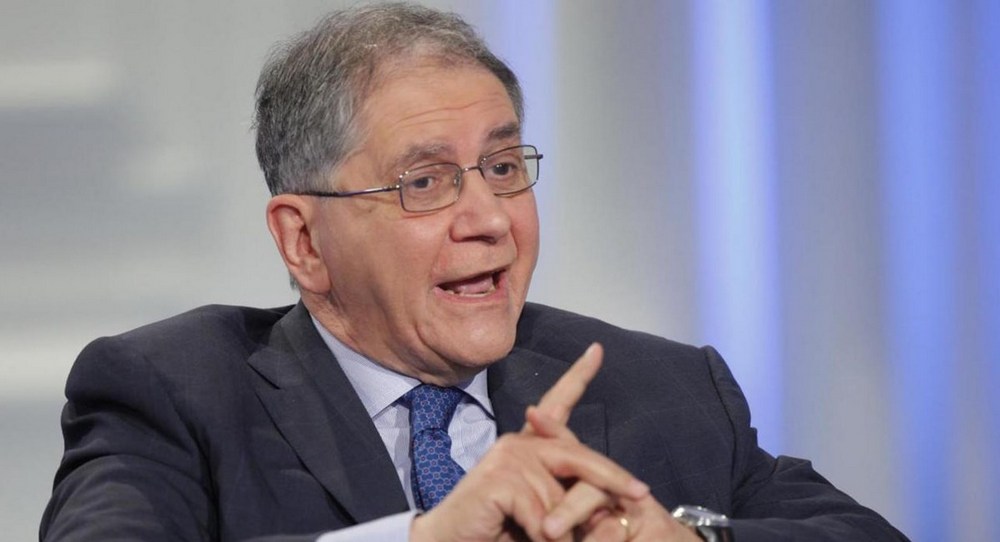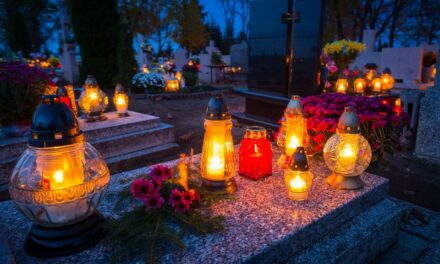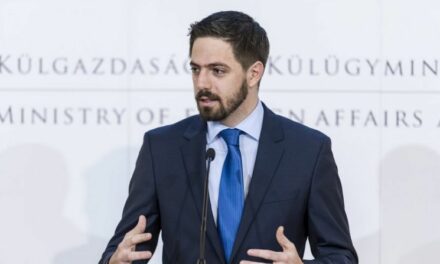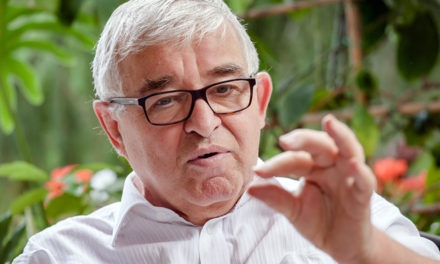First you have to love your family, your nation, Europe, and then you can love humanity as well. We have to fight in Europe to get Europe back on the path we got stuck on. When they defeated us, they talked about the Europe of rights, the rights of individuals, without any mention of duties. Yet the rights of families, communities, and nations are born from these duties. And Europe cannot be built without duties, and regaining a sense of duty is an important part of solving the problems before us.
This time, Professor Rocco Buttiglione, an Italian Christian Democrat scientist and politician who is a member of the Pontifical Academy of Social Sciences, a lecturer at several universities, and who was also Minister of European Affairs in Silvio Berlusconi's former government, gave an interview on Kossuth Rádió's program Új világ.
– What does Christianity mean today and what does it mean to be a Christian in Europe today?
- Being a Christian means, for me, that throughout my life I have met people who surrounded me with love, and this love - as they told me - was nourished by Jesus Christ, His presence, and this gives true humanity.
– And what does Christianity mean in Europe today, indeed, is Europe still a Christian continent?
- Look, I would hesitate if I had to say that the Europe of our time is no longer Christian. We face a challenge, but every age has its own new challenge for the church in spreading and accepting Christianity. And the church must find the right way to proclaim the gospel in every age.
– What challenges do Europeans have to face today?
– The big challenge today, it seems, is that we have lost the ability to truly love. This is indicated by, for example, not getting married because we do not want to commit ourselves for the rest of our lives. Europe needs courage first. II. In his apostolic letter to young people, János Pál said: be brave! Do not be afraid! Don't be afraid to love, don't be afraid to get married, don't be afraid to raise children! Don't be afraid to fall in love with even an idea! Don't be afraid to love your nation!
Because one of our problems today is precisely generalizing humanism, which proclaims that the love of humanity replaces the love of concrete people who are close to me.
Nietzsche once said: distant love does not always, but often, serves to cover up hatred and contempt for those close to me. Actually, you have to love your family, your nation, Europe first, and then you can love humanity as well. If you want to love all of humanity, but at the same time you don't love your nation, your family, then this love is not worth a penny. This is what I mean when I say that in Europe we have lost the ability to love. And do you know what this is most evident in? That we don't have children. Many people say: Europe will soon no longer be Christian. Maybe it really won't be, but it might even be that Europe won't be either.
Because if we continue like this, then in a hundred years the great and noble cultural nations of world history, Italy, Germany and Hungary, will disappear.
Although Hungary has recently pulled itself together a bit, there are still not enough children being born for the country to survive in history. And then they will talk about us the way we talk about the Babylonians and the Assyrians. They were great civilizations, they were decisive in an era of world history, but then they disappeared... So, an important question is how Europe regains its trust in the power of love? The kind of love that builds families and takes care of children, and thanks to which children later take care of their parents. Do you know what is Europe's most serious problem today, in a political sense? What no one is talking about? That there are no children.
- It is true that some large European countries, such as Germany, say that there are not enough workers, there is no workforce, so they call in migrants who come illegally, in large numbers; except that it might even pose a threat to European culture, right?
"Two things need to be clarified." Immigrants can come, why not. But here they should find themselves facing a strong, confident culture. But it's not like that. We are unable to assimilate them because we no longer believe in our own culture. In the past, when we were in government, I think of Helmut Kohl and his friends - among whom I was also there, and Viktor Orbán, who was also Kohl's friend - so, the chancellor once said: welfare can be protected by extending it to others too. We need to help Africa develop. That the people living there have the freedom to - not leave their country. If they develop, it also strengthens us. A developing continent is a huge market for us as well, which further strengthens them as well. But this also requires a vision! So,
we must help the development of Africa, or the countries from which the migrants come. And it can be done, we can do it.
I will tell you a story. A few decades ago, everyone in Italy was afraid of Albanian immigrants, with good reason, because many criminals also came from Albania. We made an agreement with Tirana, we sent back there those who could not stay with us under any circumstances. The Albanian authorities helped us in this. We helped create jobs on Albanian soil, and even more people went home from us. We have expanded our relations, Albania has developed and Italy has also developed. We could do this worldwide, but for this we need Europe, a Europe that has an elaborate cooperation development policy, and let's not say that it can't be done. We must create an economic system in which we mutually help each other. But all this cannot happen without a cultural change. Without Europe being brave again, trusting in itself. It is the same courage that makes you capable of love, marriage, and raising children.
If we once again have the courage to love, our religion, our culture, our history, our nations, our Europe, then we can return again. If not, we are on the road to decline.
It's a bit like the situation at the end of the Roman Empire. When the empire began to decline, Christianity arrived at that moment, and although after a long period of struggles, difficulties, and problems, it made a new beginning possible. Well, I hope for such a new beginning.
– Speaking of the ancient Roman Empire, will a new Symmachus arrive in Europe?
"I don't know, I'm hoping for a new St. Augustine." He was with us a little already, because II. Pope John Paul II gave Europe a huge push and strength. For a moment, it seemed that Europe was falling in love with itself again. We had great battles, we achieved great victories. Communism collapsed. But there is also a problem here: we wanted to reunite Europe, but instead we only expanded it. The reunification of Europe, as II. János Pál thought it was based on using each other's talents. We give you, communist countries, the tools necessary to create an efficient market and a functioning democracy, and you give us the great values of European Christian and Greco-Latin culture that you rediscovered in the struggle against the totalitarian system. However, all this did not work out, we were defeated. We wanted Christian values in the European constitution, but we did not succeed. We wanted a European constitution, but that didn't work either. We ended up with the Treaty of Lisbon, which is a very bad agreement that cannot be used to govern Europe. Maybe we should start over here. Many flee to their nation to resist a European culture that is currently dominant but is not really European at all. And which they feel is hostile.
We have to fight in Europe to get Europe back on the path we got stuck on. When they defeated us, they talked about the Europe of rights, the rights of individuals, without any mention of duties.
Yet the rights of families, communities, and nations are born from these duties. And Europe cannot be built without duties, and regaining a sense of duty is an important part of solving the problems before us.
Source: hirado.hu
Photo: opinione.it












